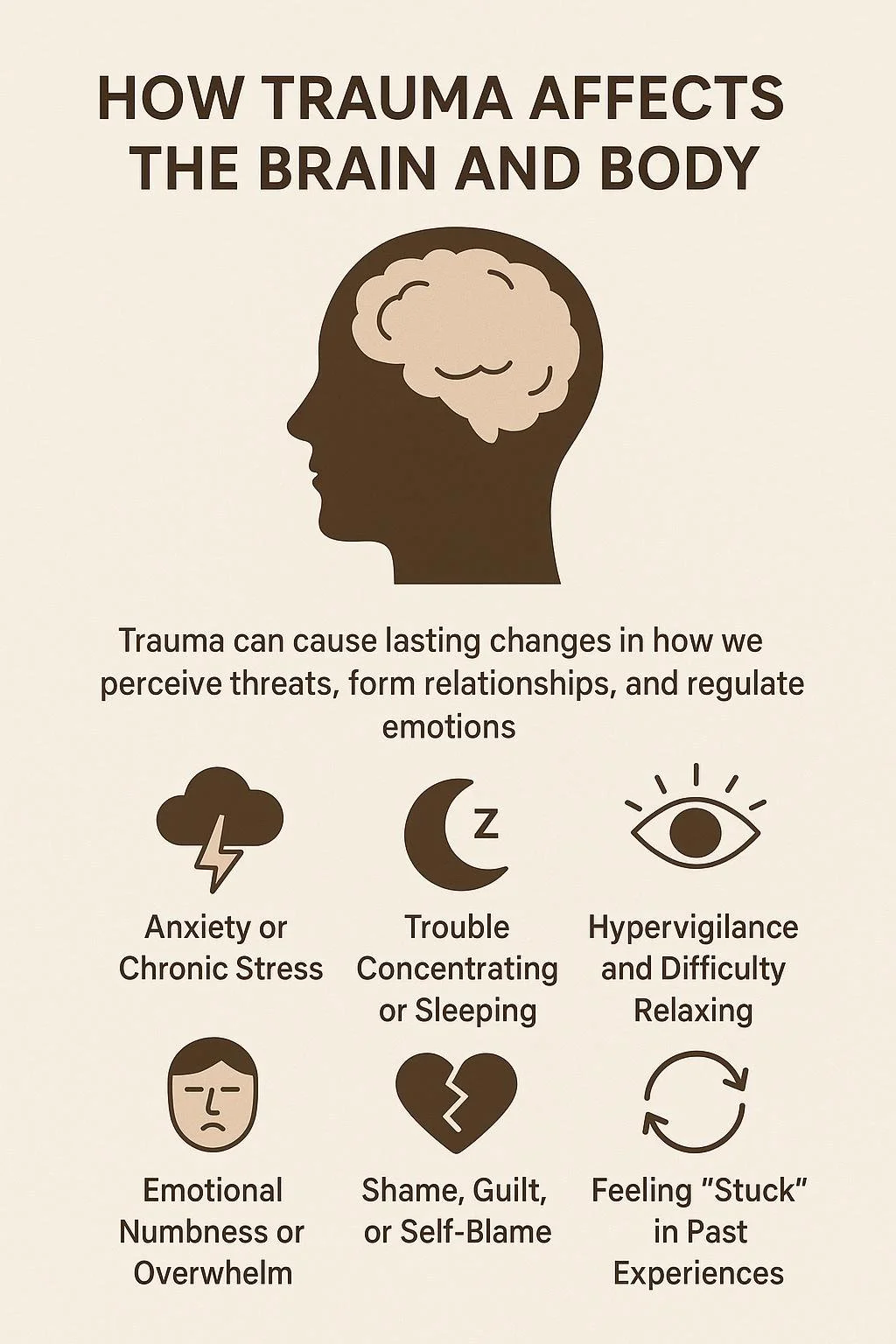Understanding Trauma
Learn how trauma shapes our emotional responses—and how healing is possible with the right support.
“Trauma is not what happens to you. It’s what happens inside you as a result of what happened to you.”
What is Trauma?
Trauma is not defined by an event itself, but by how your nervous system responds to it. When something happens that overwhelms your ability to cope—whether a single shocking incident or a long period of chronic stress—your body and mind can become stuck in survival mode.
Trauma can result from:
Abuse (physical, emotional, sexual)
Neglect or abandonment
Loss of a loved one
Medical procedures or accidents
Events such as natural disasters
Being in combat or living in a war zone
Bullying or discrimination
Growing up with a caregiver who was emotionally unavailable or unpredictable
You do not need to have experienced violence or catastrophe to be affected by trauma. It can arise from anything that left you feeling helpless, unsafe, unsupported or unseen.
Trauma Lives in the Body
When we experience trauma, the brain's alarm system—the amygdala—goes into overdrive. This can cause lasting changes in how we perceive threats, form relationships, and regulate emotions.
Symptoms of unresolved trauma may include:
Anxiety or chronic stress
Trouble concentrating or sleeping
Emotional numbness or overwhelm
Hypervigilance and difficulty relaxing
Shame, guilt, or self-blame
Feeling “stuck” in past experiences
The nervous system can become dysregulated, leading to a persistent sense of danger, even when you're safe.
Different Types of Trauma
Understanding the type of trauma you’ve experienced can help shape the path to healing.
Acute Trauma: A single incident (e.g., accident, assault)
Chronic Trauma: Ongoing situations (e.g., abuse, neglect)
Complex Trauma (C-PTSD): Early, repeated, or relational trauma—often involving caregivers or attachment wounds
Developmental Trauma: Disruptions in early childhood safety, attunement, or emotional needs
Secondary/Vicarious Trauma: The emotional residue from hearing about others’ trauma (common in therapists, healthcare workers, first responders)
Trauma responses are not signs of weakness—they are survival strategies.
Over time, these strategies may become limiting, but they once helped you survive. Therapy offers a way to safely process those past experiences and create new, adaptive ways of being.
Healing Is Possible
Trauma therapy can help your nervous system return to a place of balance. As an EMDR-certified therapist, I use approaches like EMDR, Parts Work, and Somatic Therapy to help you process painful memories and reconnect with your inner strength.
You don’t have to relive the past to heal from it—but you do need a safe space to make sense of it.
Ready to Take the Next Step?
I provide trauma therapy online to adults in Arizona, Oregon, Washington, and Massachusetts. If you're ready to explore what healing could look like for you, I invite you to reach out for a free consultation.
